Student Programs
Student programs at the National Archives bring students in contact with the people and documents that have shaped our nation. Through document analysis and historical thinking routines, K-12 students explore history, civics, and the American experience using primary source documents from the National Archives.
Field Trips in Washington, DC
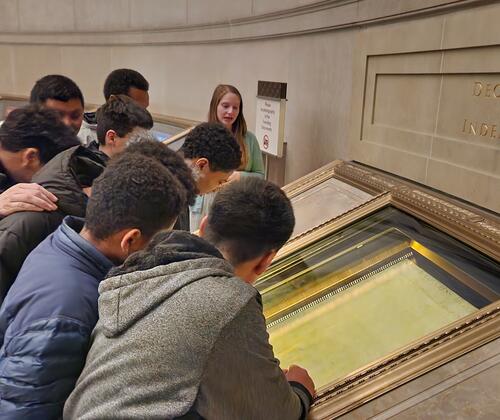
Inspire students through civics knowledge and reflection on America’s founding documents—and their role in young people’s lives today—with a class visit to the National Archives Building in Washington, DC!
Distance Learning
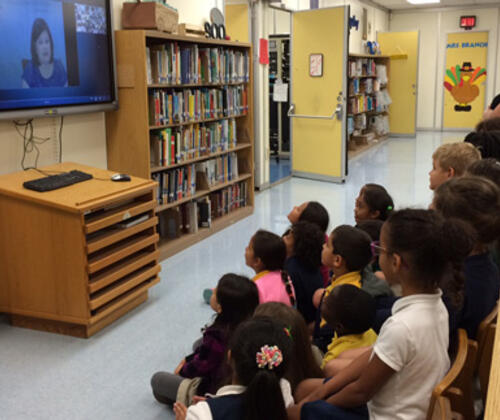
Visit the National Archives without leaving your school or home! We offer free distance learning opportunities for students and educators.
Civics for All of US
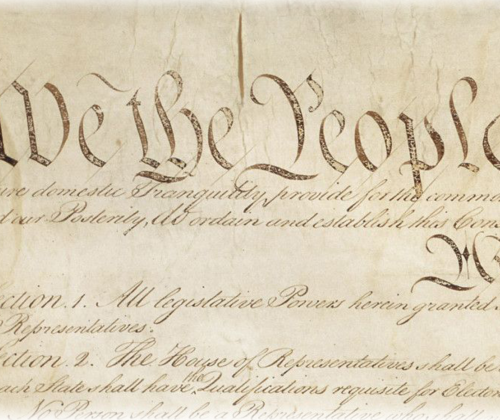
Civics for All of US delivers thought-provoking educational programs and powerful educational resources for students and educators, regardless of their proximity to a National Archives facility.
Teacher Programs
Be inspired to use primary sources from the National Archives in your classroom no matter what subject you teach. Through our in-person and virtual professional development sessions, you will learn and practice techniques to help students make meaningful connections with records from the past.
Summer Teacher Institutes
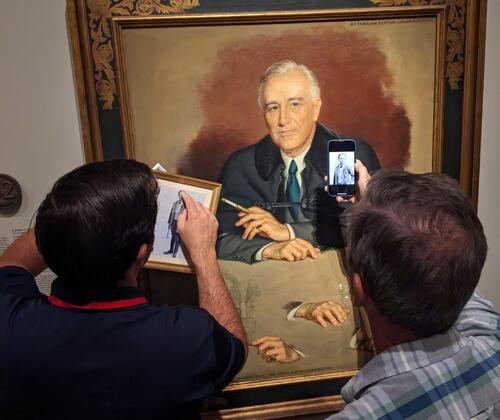
Join National Archives educators in Washington, DC, for multi-day, in-person programs that take a broad look at the Archives’ collection. Using an interactive approach, NARA educators model a variety of primary source analysis strategies—unique ways to engage students when they look closely at documents.
Education Workshops
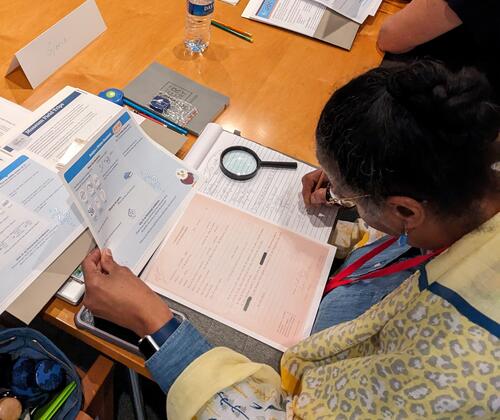
Request “Archives & Inquiry: Teaching Strategies and Resources from the National Archives,” an interactive session modeling inquiry-based approaches to teaching with primary source documents. This free, in-person professional development sessions run between 90 minutes and two hours in length.
On-Demand Webinars
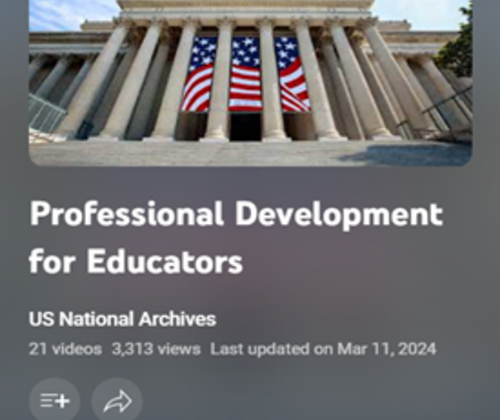
Learn how to use primary source documents in the classroom from the comfort of your home or office. View archived professional development webinars for ideas and strategies about bringing National Archives records into your teaching. Our on-demand webinars cover DocsTeach basics and other special topics related to National Archives primary sources and resources from National History Day to D-Day.
Classroom Resources
DocsTeach
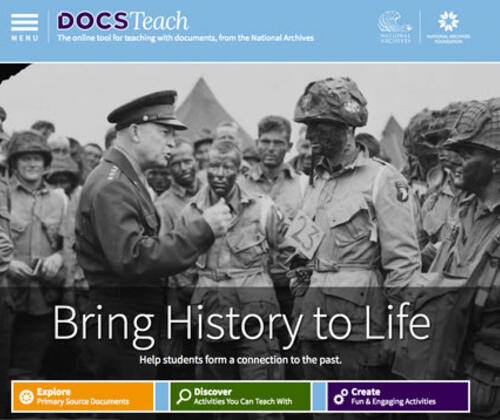
Explore our online tool for teaching with documents from the National Archives. On DocsTeach you can access thousands of primary sources—letters, photographs, speeches, posters, maps, videos, and more—spanning the course of American history. And we're always adding more!
Analysis Worksheets
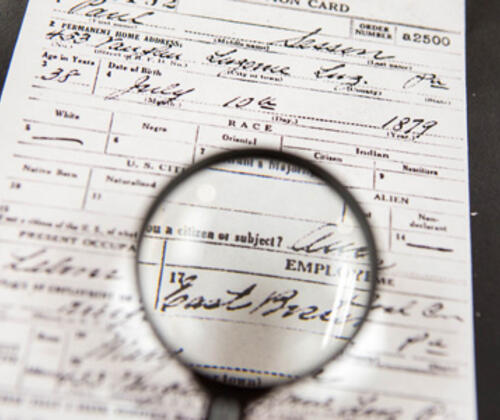
Document analysis is the first step in working with primary sources. Teach your students to think through primary source documents for contextual understanding and to extract information to make informed judgments.
Resources for National History Day
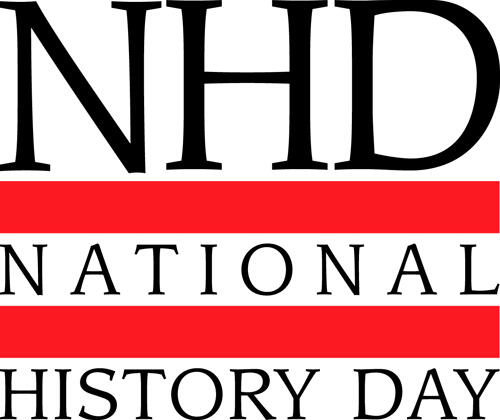
The National Archives hold billions of primary sources, many of which can be incorporated into National History Day research and projects. Use the resources on this page to get started and learn more!
Teaching with Documents
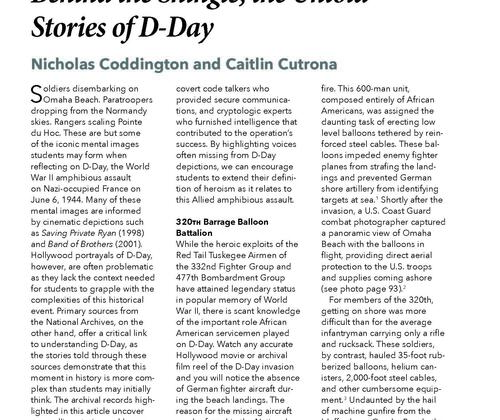
Check out the latest “Teaching with Documents” featured article in Social Education to learn more about National Archives collections and how to bring them into the classroom.
Milestone Documents
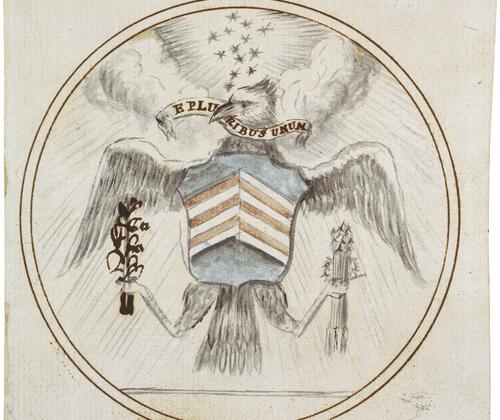
Access primary sources related to pivotal moments in American history and government, including images, historical context, and transcriptions.
Legislative Archives
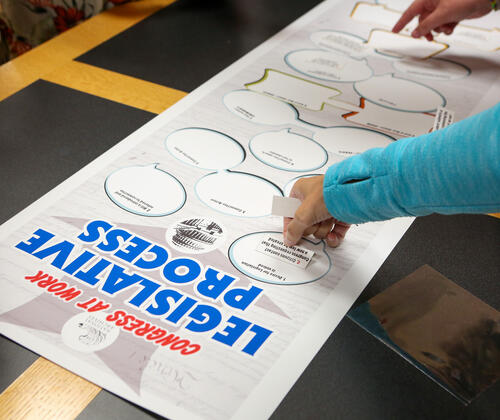
The Center for Legislative Archives—part of the National Archives—maintains some of the most historically valuable documents created by the federal government: the records of the U.S. House of Representatives and the U.S. Senate. Educators can use these historical documents to teach about representative democracy, how Congress works, and the important role Congress has played throughout American history.
Presidential Libraries
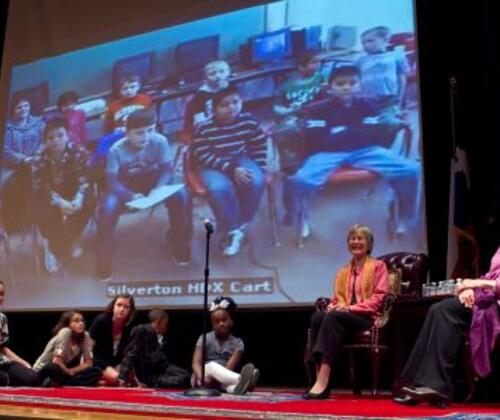
Presidential Libraries provide a broad range of educational opportunities for students of all ages. The Presidential Libraries offer programs designed to introduce students to American history and the Presidency and to inform teachers about the use of primary source documents in teaching history.
Please email education@nara.gov to learn more, or sign up for our quarterly newsletter.